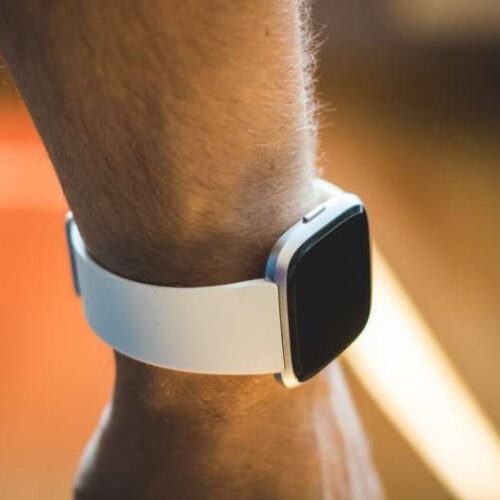JANUARY 21ST, 2025POSTED BY KATHERINE FENZ-ROCKEFELLER (Credit: Getty Images) SHARE THIS ARTICLE You are free to share this article under the Attribution 4.0 International license. TAGS UNIVERSITY ROCKEFELLER UNIVERSITY An expert has answers for you about keeping your circadian rhythms, which have been implicated in diseases from dementia to cancer, in tip-top shape. In this season of short...
Tag: <span>Circadian</span>
Fitbits perform well in capturing circadian rhythms but not sleep time
by University of Texas at Austin Credit: Unsplash/CC0 Public Domain Fitbit devices provide accurate measurements of wearers’ circadian rhythms, or rest-activity cycles, but underestimate sleep measures, according to researchers at The University of Texas at Austin and the University of Texas M.D. Anderson Cancer Center in Houston. The findings demonstrate that the efficacy of the commonly...
Protein found that keeps the circadian clock on schedule
by Bob Yirka , Medical Xpress RUVBL2 protein (in red) acts to integrate the circadian repressive super-complex, and how the physiological metabolite of cordycepin (CoTP, the green key) breaks down the complex and causes a 12-hour clock phase-shift. Credit: Zhancong Xu A team of researchers from several institutions in China and two in the U.S....
Circadian rhythm plays a part in weight loss
By Dr. Ananya Mandal, MD Weight watchers worldwide need to not only be careful about what to eat but also about the timing of the food intake finds a new study. The study is published in the latest issue of the journal Cell and is titled, “Insulin/IGF-1 drives PERIOD synthesis to entrain circadian rhythms with feeding...
U of T Mississauga study identifies ‘master pacemaker’ for biological clocks
UNIVERSITY OF TORONTO What makes a biological clock tick? According to a new study from U of T Mississauga, the surprising answer lies with a gene typically associated with stem and cancer cells. In the first study of its kind for the field of circadian biology, UTM researchers used RNA sequencing to observe the expression of genes...
New Blood Test Will Determine Your Body Clock: Here’s Why You Need To Know
A new blood test will be able to determine a person’s body clock compared to external time, a breakthrough that may help with personalized medical treatments. The biological clock is officially referred to as circadian rhythms, a burgeoning field of research that looks to determine the clock’s effects on how a person’s body works. Scientists...
Researchers reveal how blue light exposure is damaging our eyes
In today’s highly connected world we are increasingly having blue light beamed into our eyes at all times of day. While a convincing body of research is suggesting blue light from our TVs, computers, smart phones and tablets can significantly disrupt our circadian rhythms, it is less clear how much damage this particular spectrum of light...
What 800 million tweets reveal about our thought patterns
A large analysis of around 800 million tweets during a 4-year period suggests that circadian rhythms control our way of thinking. Our circadian rhythms are known to affect our mood, as our energy levels spike and dip at different times of the day. When taken collectively, the content of our tweets reveals more insight into our predictable...
Revisiting existing drugs finds molecules that control body clocks
Discovery of an anti-aging supplement that reduces jet lag in mice IMAGE: STUDIES SHOW THAT APPROXIMATELY 5 PERCENT OF THE EXISTING DRUGS MAY HAVE AN EFFECT ON CIRCADIAN RHYTHMS. Using drug repurposing, a team of researchers led by animal biologists at Nagoya University has discovered compounds that can either shorten or lengthen the circadian rhythm in...


